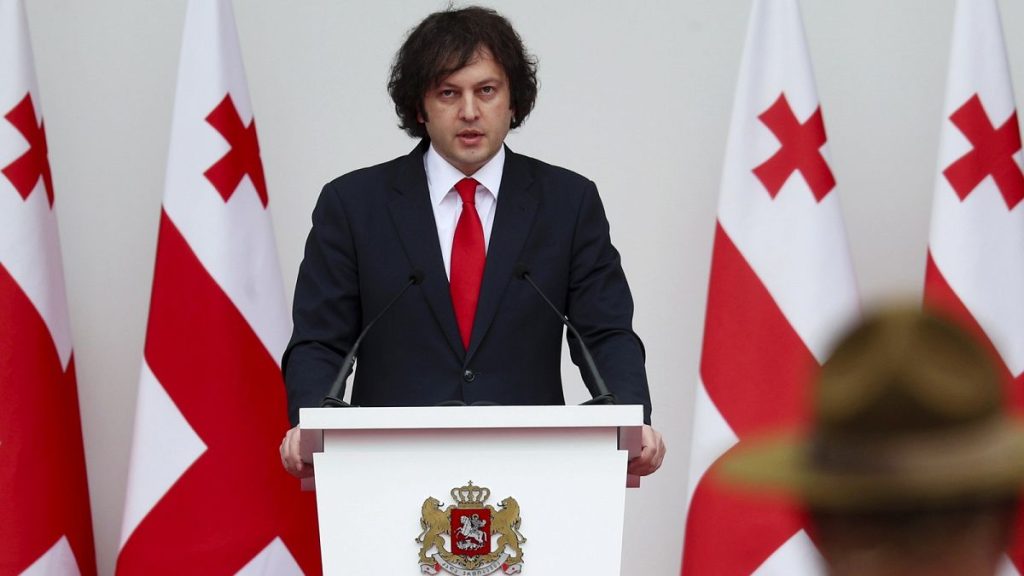Summarize this content to 2000 words in 6 paragraphs
The Commission’s proposal will only apply to Georgian holders of diplomatic and service passports, exempting the general population.
The European Commission has proposed to suspend the visa-free travel regime for Georgian diplomats and officials in response to the violent crackdown on protesters, who have been taking to the streets for weeks to denounce the ruling party’s gradual pivot away from Europe and towards Russia.The demonstrations, now in their 22nd day, began in late November after Prime Minister Irakli Kobakhidze unexpectedly announced he would not pursue EU membership talks until 2028, despite an obligation in the Constitution that compels state bodies to “take all measures within the scope of their competences” to ensure Georgia’s integration.The violent suppression of pro-EU protesters has led to chaotic clashes on the streets, arrests of opposition figures, multiple reports of injured people and hundreds of arrests, coupled with accusations of beatings, torture and robbery at the hands of the police.The outrage has been compounded by the raft of irregularities that marred the parliamentary election of October, which saw Kobakhidze’s party secure a majority.Earlier this week, High Representative Kaja Kallas tabled the first-ever proposal to sanction Georgian officials responsible for the crackdown. But her plan was vetoed by Hungary and Slovakia, who denounced it as interference in domestic affairs. (Days later, the UK and the US introduced sanctions on a handful of Georgian officials.)Kallas, however, gained sufficient support to suspend visa-free travel for Georgian diplomats, which is considered far less potent than sanctions.”Georgian authorities cannot repress peaceful protests without consequences,” Kallas said on Friday, announcing the proposal. “We are also discussing additional measures,” she added, without saying which ones.Ursula von der Leyen, the president of the European Commission, said: “Our message to the leadership is clear: Stop harming your own people.”The Commission’s proposal only requires a qualified majority of member states to be approved, depriving Hungary and Slovakia of veto power. The scope of the suspension is limited to holders of diplomatic and service passports, meaning only those working for state institutions will need to obtain a visa. Extra facilitations, such as shorter application times, lower fees and the reduction of supporting documents, will no longer apply for them, the Commission explained.Member states had previously signaled their strong reluctance to apply the restriction to the general population, fearing negative effects for those protesting on the streets.Asked if the Commission expected Hungary and Slovakia to implement the measure if approved, a spokesperson said: “I cannot reply on behalf of member states but member states will, of course, have to follow this approach.”Anticipating the decision, Kobakhidze had dismissed it for having “essentially symbolic significance” and undermining the EU “in the eyes of Georgian society.”Georgians have enjoyed visa-free travel to the bloc since 2017 as part of a strategic approach to deepen ties with the Eastern neighbourhood, which also applied to Moldova and Ukraine. As a result, Georgian nationals can enter the Schengen Area and stay for 90 days without the hassle of applying for a visa.But in recent months, the actions of the ruling party, Georgian Dream, have cast doubt over the country’s compliance with the basic requirements to enjoy such a benefit.In its latest report, the Commission concluded Georgia no longer met all the criteria necessary for visa-free travel and called, among other things, for the repeal of two controversial laws targeting NGOs and LGBTQ+ rights that have raised comparisons with the Kremlin and led to a de-facto halt in accession talks.
Keep Reading
Subscribe to Updates
Get the latest creative news from FooBar about art, design and business.
© 2026 Globe Timeline. All Rights Reserved.













